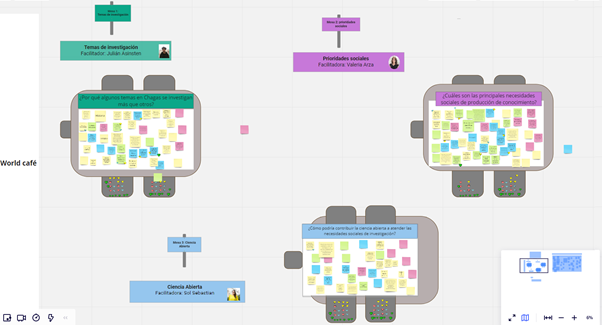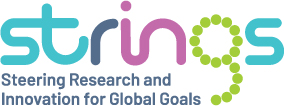What knowledge do we need to address Chagas?
Valeria Arza, Julián Asinsten y Sol Sebastián
Results from World Café exercise | Online Workshop from STRINGS project
On October 29th, we held a virtual workshop to outline, in a collaborative way, what type of scientific research is most helpful in addressing Chagas disease, which is one of the case studies carried out in the context of the STRINGS project. Fifteen people participated from different parts of the country. They contributed their experience and perspective on the topic. Among participants, there were actors from scientific, public policy and civil society organisations.
The workshop was organized with a “World Café” methodology: three discussion tables were proposed, around which all participants rotated over two and a half hours. The discussions were very rich; they were carried out in small groups and we noticed interest in participating and a fair word circulation. We synthetise the main points that emerged in each table below.

Table 1: Why are some topics more highly prioritised in the scientific agenda about Chagas?
Participants contributed with different views. They pointed to funding schemes as one of the main reasons for the prevalence of certain research topics over others. This generates a bias: as there
